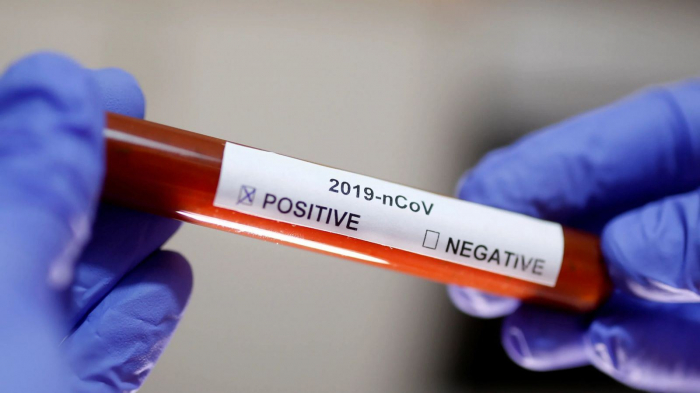Covid-19 has been devastating for many reasons. There are the distinctive features of how the virus spreads and sickens us. There is the insufficient preparation, infrastructure, and leadership.
Naturally, there's the social inequality that guaranteed that the virus would run its wildest among people with the least resources. The list goes on and on. But it's worth examining how the wreckage has also been made worse by a feature of our psyches -- namely, how poorly we handle ambiguity.
Ambiguity is very different from its cousin, risk. Suppose you have to choose between two doors; pick the correct one and you win the lottery; pick the wrong one and you're beaten senseless by some thugs who dump you in an alley. That's about calculated risk. Suppose instead that you have to choose whether to let a complete stranger decide if you win the lottery or get beaten. That's ambiguity.
The difference between risk and ambiguity can be studied scientifically. In the risk scenario, you are presented with a closed box containing one hundred tokens, 50 black and 50 white.
Close your eyes, pick a token at random. If it's black, you get a reward; white, punishment. In the ambiguity scenario, all you know is that at least one of the hundred tokens is black, at least one is white. Go ahead and pick.
In the risk scenario, there's a 50% chance of a good outcome. In the ambiguity one, the chance of a good outcome averages out to that same 50%, but ranges from 1% to 99% -- there's just no way of telling. People vary dramatically as to how willing they are to take a risk, and some people thrive on it. In contrast, people consistently hate ambiguity.
People typically dislike ambiguity more than they dislike risk. It is an evolutionarily ancient response -- even chimps and monkeys prefer risk to ambiguity.
When we consider risk, we activate parts of our brains related to calculating odds and executive features of decision-making, and if there's a good outcome at the end, things feel rewarding.
In contrast, when we wrestle with ambiguity, we activate brain regions central to anxiety and revulsion, and if there's a good outcome, we mostly feel less dread. While risk-taking is built on lack of control and of predictability, with ambiguity, it's those same factors -- but on steroids.
Which brings us to Covid-19. We're accustomed to navigating a world of medical risk. Vaccinate a population for polio, and roughly once in 13.1 million times, things go awry, and the vaccine causes rather than prevents the disease.
We can literally look it up. And we can then reason our way to a logical response -- vaccinate your child. And just as clearly known, if you smoke, and your chances of dying from lung cancer are 15 to 30 times higher than if you don't. Reasonable response -- don't smoke.
This is not to say we're great at evaluating risk; we're often lousy at it. Rather than deny ourselves, we rationalize, concluding that something horribly risky doesn't apply to us, do mental contortions to decide that we're more likely to die from being attacked by a great white shark who has Ebola virus, than from texting while driving.
But while critical thinking may take a hit amid risk, our brains unravel and run amok in the empty moonscape of ambiguity. And that's what our pandemic world is now. Can airborne coronavirus infect you, even if you are appropriately socially distanced? "Still not clear."
When will there be a vaccine? "Too early to say."
How long do you make antibodies after surviving Covid-19? "Researchers are only in the preliminary stages of understanding that."
Will a second wave of sickness this winter dwarf the first wave (as with the 1918 flu pandemic)? Why does Covid-19 ever kill a perfectly healthy young person?
And will historians conclude that Trump musing about treating coronavirus patients with disinfectants is the most ghastly event in presidential history, or merely one of the most ghastly? Stay tuned.
When there's a truly scary, invisible "thingie" out there, life becomes an exercise in deciding whether a monumentally important glass is half full or half empty.
At one extreme, decide that this invisible virus is nowhere, and soon you're partying unmasked (and of relevance, adolescents are typically less averse to ambiguity than are adults).
At the other extreme, decide that this invisible virus is everywhere, on every surface, on every breeze that passes through the mountaintop you've fled to in the hopes of feeling safe even briefly, and soon you're part of the current tidal wave of anxiety.
The Covid-19 ambiguity also becomes an exercise in how much of a sense of agency we can draw on. Take a deep, calming breath and recognize that amid the known and unknown unknowns, we still do know some facts about this virus and that there are things you can do to be safer. In contrast, decide that you are helpless, a hostage of random chance, and soon you're part of the equally huge current tsunami of depression.
A time like this can make us gyrate between paralysis and impetuousness; blind us as to whose well-being matters; drive us to a frantic search for attribution that leads us to scapegoating. We must guard against how ambiguity can bring out the worst in us.
By Robert Sapolsky,
Professor of biology, neurology and neurosurgery at Stanford University.
CNN
More about: #COVID-19
















































